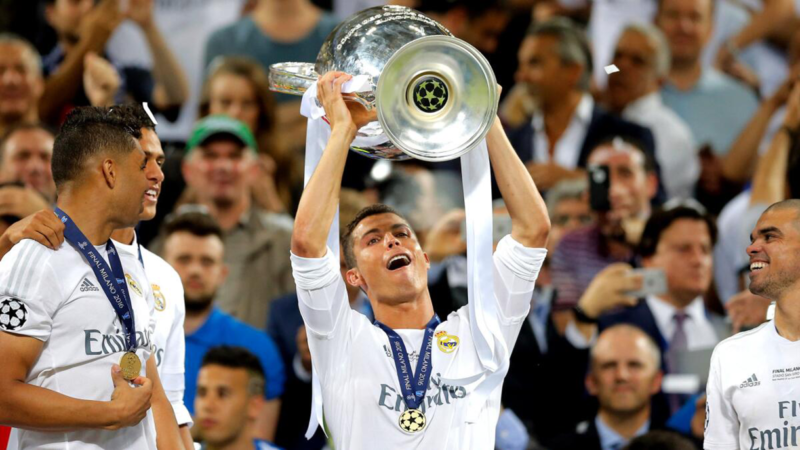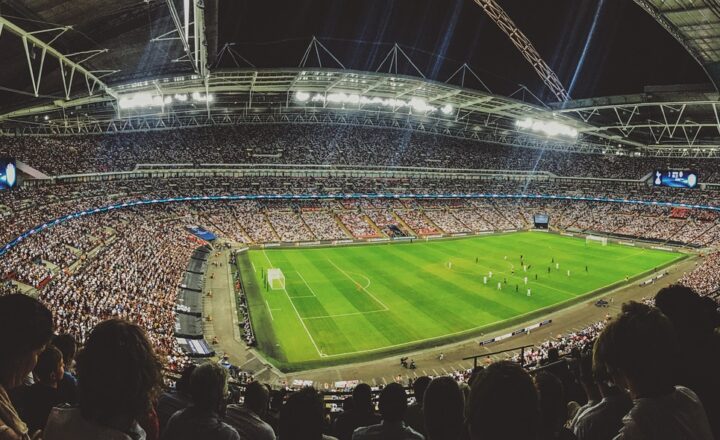How Real Madrid Dominated the Champions League: A Look at Their Unstoppable Run
October 23, 2024

Real Madrid’s unparalleled success in the UEFA Champions League has cemented the club’s status as the most successful team in European football. With a record 14 titles to their name, including an unprecedented five titles in the modern Champions League era (2014-2018), Real Madrid’s dominance has left an indelible mark on the competition. In this article, we’ll explore the key moments, players, and strategies that contributed to Real Madrid’s unstoppable run in the Champions League.
1. The Foundation of Success: Real Madrid’s Early European Dominance
Real Madrid’s dominance in European football began long before the modern Champions League format. The club won the first five European Cups (1956-1960), establishing themselves as a powerhouse on the continent. Led by legendary figures such as Alfredo Di Stéfano and Ferenc Puskás, Madrid’s early European success laid the foundation for their future dominance.
Key Moment: Real Madrid’s 7-3 victory over Eintracht Frankfurt in the 1960 European Cup final is widely regarded as one of the greatest performances in football history. Di Stéfano and Puskás were unstoppable, with Puskás scoring four goals and Di Stéfano adding a hat-trick.
Legacy: These early victories set the tone for Madrid’s European ambitions and created a culture of success that continues to define the club to this day.
2. The Modern Era: La Décima and Beyond
After years of near-misses and disappointment, Real Madrid finally captured their long-awaited 10th European title—La Décima—in 2014. Under manager Carlo Ancelotti, Madrid ended a 12-year Champions League drought by defeating Atlético Madrid 4-1 in the final.
Why La Décima Was Crucial: The pressure to win a 10th European title had weighed heavily on the club for over a decade. With stars like Cristiano Ronaldo, Gareth Bale, and Sergio Ramos leading the way, Madrid’s extra-time victory against Atlético marked the beginning of a new era of European dominance.
Standout Moment: Sergio Ramos’ 93rd-minute header to equalize the final and force extra time remains one of the most iconic moments in Champions League history. Madrid went on to score three goals in extra time, securing their place in history.
3. The Zidane Era: Three-Peat Champions (2016-2018)
Real Madrid’s greatest period of dominance in the Champions League came under the management of Zinedine Zidane. Between 2016 and 2018, Madrid achieved what no other club had ever done in the modern Champions League era—winning the competition three years in a row.
Key Players: During this period, Cristiano Ronaldo was at the peak of his powers, scoring crucial goals in knockout stages and finals. Luka Modric and Toni Kroos controlled the midfield, while Sergio Ramos provided leadership and defensive solidity.
Champions League Final Wins:
- 2016: Real Madrid defeated Atlético Madrid on penalties after a 1-1 draw, with Cristiano Ronaldo converting the winning penalty.
- 2017: Madrid beat Juventus 4-1, with goals from Ronaldo (2), Casemiro, and Marco Asensio. This win marked Madrid’s 12th European title.
- 2018: In a dramatic final against Liverpool, Madrid won 3-1, thanks to Gareth Bale’s spectacular bicycle kick and two mistakes by Liverpool’s goalkeeper, Loris Karius.
Legacy: Zidane’s three consecutive Champions League titles are a feat unmatched in modern football, solidifying his place among the greatest managers of all time. This era also cemented Real Madrid’s status as the kings of Europe.
4. Cristiano Ronaldo: The Ultimate Champions League Player
No discussion of Real Madrid’s dominance in the Champions League would be complete without highlighting the contributions of Cristiano Ronaldo. Widely regarded as one of the greatest players in football history, Ronaldo’s performances in the Champions League are legendary.
Ronaldo’s Impact: Ronaldo scored an incredible 105 goals for Real Madrid in the Champions League, becoming the all-time leading scorer in the competition. His ability to deliver in the biggest moments—whether in the knockout stages or finals—was unmatched.
Key Moment: Ronaldo’s overhead bicycle kick against Juventus in the 2018 quarterfinals was a moment of brilliance that exemplified his skill, athleticism, and impact in the Champions League. It remains one of the most iconic goals in football history.
Legacy: Ronaldo’s contributions were instrumental in Madrid’s four Champions League titles during his tenure, and his legacy as the ultimate Champions League player is undisputed.
5. The Leadership of Sergio Ramos
While Ronaldo’s goals were crucial to Madrid’s success, the leadership and defensive prowess of Sergio Ramos were equally important. As the captain of Real Madrid, Ramos provided stability at the back and a winning mentality that lifted the entire squad.
Ramos’ Impact: Ramos had a knack for scoring vital goals, particularly in big moments. His 93rd-minute equalizer in the 2014 final against Atlético Madrid remains one of the most important goals in the club’s history. As a leader, his presence on the field inspired confidence in his teammates.
Legacy: Ramos’ combination of defensive ability, leadership, and clutch goals made him one of the most influential players in Real Madrid’s Champions League success.
6. The Tactical Brilliance of Zinedine Zidane
Zinedine Zidane’s leadership as a manager was pivotal in Madrid’s dominance. Known for his calm demeanor and tactical flexibility, Zidane was able to get the best out of his star-studded squad while maintaining harmony in the dressing room.
Zidane’s Key Tactical Moves: Zidane’s use of the 4-3-3 formation, with Casemiro providing defensive cover for Modric and Kroos, allowed Madrid to control games in midfield while unleashing their potent attack. Zidane’s ability to rotate his squad effectively also kept players fresh for the most important stages of the competition.
Legacy: Zidane’s three consecutive Champions League titles as a manager solidified his place in football history, and his ability to manage egos and deliver results under pressure was key to Madrid’s success.
7. Real Madrid’s Mentality: The DNA of Champions
Perhaps the most defining characteristic of Real Madrid’s dominance in the Champions League is the club’s mentality. Madrid’s ability to perform in the biggest moments, whether through last-minute goals or clutch performances, is ingrained in the club’s DNA.
Never-Say-Die Attitude: Whether coming from behind to win or holding off late charges from opponents, Madrid’s resilience in the Champions League has been a hallmark of their success. The belief that they could win even when the odds were stacked against them has defined their European campaigns.
Legacy: Real Madrid’s dominance in the Champions League has become synonymous with the club’s identity. The pressure of the competition seems to bring out the best in the team, and their unrivaled success in Europe is a testament to their winning mentality.
Conclusion: Real Madrid’s Unstoppable Run in the Champions League
Real Madrid’s dominance in the Champions League, particularly during the modern era, is unmatched in football history. With a combination of world-class players like Cristiano Ronaldo and Sergio Ramos, visionary leadership from Zinedine Zidane, and an unwavering winning mentality, Real Madrid has solidified its legacy as the greatest team in European football. Their unstoppable run in the Champions League is a testament to the club’s ambition, resilience, and ability to deliver on the grandest stage.






